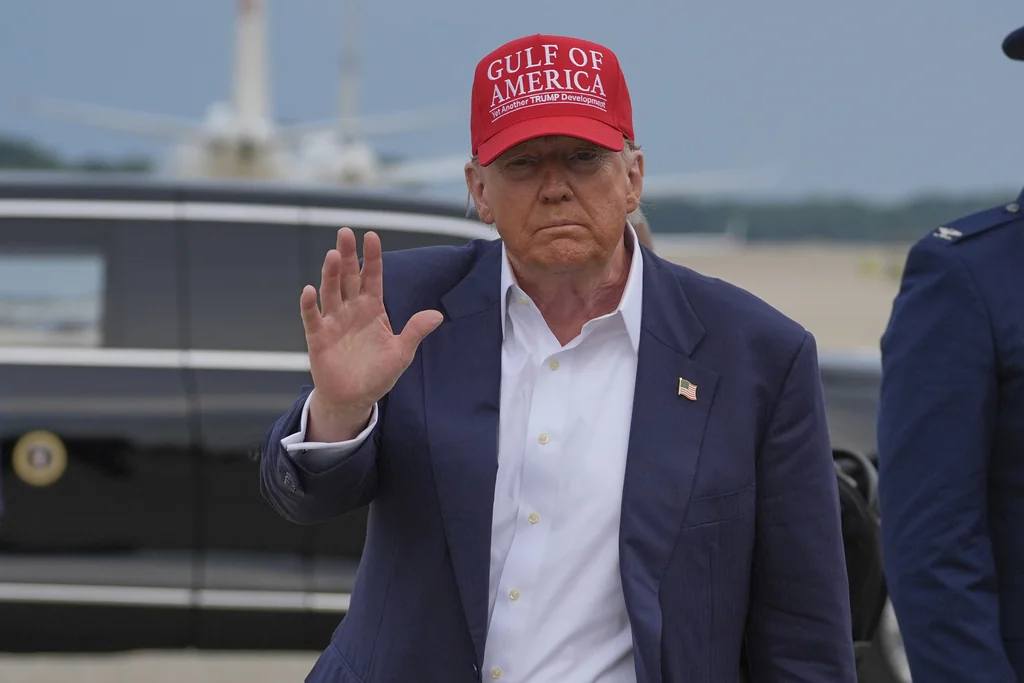Subtotal: $780.00


President Donald Trump’s administration staged a multi-person, multiday campaign pressuring Republican lawmakers to pass a major domestic policy bill before the Fourth of July deadline.
The efforts notched Trump’s most significant legislative win of his second tenure in the White House. Following Thursday’s House passage, the president will sign the bill into law during a signing ceremony at 5 p.m. on Friday, July 4.
HOUSE HANDS TRUMP HIS JULY 4 VICTORY WITH PASSAGE OF ‘BIG, BEAUTIFUL BILL’
Trump, Vice President JD Vance, and several Cabinet members spent days meeting with Republicans at the White House and Capitol Hill, starting last weekend ahead of the Senate’s passage vote. The strategy marked a significant shift from how Trump approached the original House passage. On that earlier, more hands-off approach, senior White House officials said that the president was “generous about letting the legislative process play out,” while still making clear his red lines for the bill.
White House legislative affairs director James Braid and top deputies Pace McMullan, Jeff Freeland, and Jay Fields also deserved “great credit for shepherding this historic legislation through Congress,” Trump’s deputy White House chief of staff James Blair said in a statement. One senior White House aide said that during meetings with smaller groups of lawmakers, Braid would frequently call the president and put him on speaker phone so he could participate in the talks personally.
Meanwhile, Trump kept up the pressure on social media, imploring lawmakers and threatening holdouts. As the House struggled to clear the legislation through a procedural vote overnight on Wednesday, Trump signaled his displeasure to the world.
“Largest Tax Cuts in History and a Booming Economy vs. Biggest Tax Increase in History, and a Failed Economy,” Trump fumed on Truth Social during the midnight hour on Thursday. “What are the Republicans waiting for??? What are you trying to prove??? MAGA IS NOT HAPPY, AND IT’S COSTING YOU VOTES!!!”
“FOR REPUBLICANS, THIS SHOULD BE AN EASY YES VOTE. RIDICULOUS!!!” Trump wrote in a second post.
Trump spent most of Wednesday wrangling Republican lawmakers to quickly pass the “big, beautiful bill.”
The president held no public events that day, even after the Senate narrowly approved the reconciliation bill in a 51-50 vote, which required Vance to cast a tiebreaking vote the day prior.
He instead phoned Republican House members and summoned lawmakers to meet with him.
Centrist Republicans and members of the House Freedom Caucus, an ultraconservative group of lawmakers, met with the president, Vance, and Dr. Mehmet Oz, Administrator for the Centers for Medicare & Medicaid Services, at the White House on Wednesday.
“The president is the best closure in the business, and he got a lot of members to ‘yes’ in that meeting,” said Rep. Dusty Johnson (R-SD), chairman of the House GOP’s Main Street Caucus, after meeting with Trump. “I was at the White House for two hours. I was in for meetings in the Oval and meetings in the Cabinet Room. The president understands that the stakes simply could not be higher, and he is hour by hour, moving members in the right direction.”
On Trump’s demeanor, Johnson claimed the president was “masterful.”
“He was not frustrated. I think he was solemn. He wanted to make sure everybody understood the magnitude of the moment,” Johnson continued.
Trump’s public pressure campaign ultimately won out when holdouts, such as Rep. Ralph Norman (R-SC), who had publicly said he was a “no” on reconciliation earlier this week, waved the white flag.
“We held out as long as we could,” Norman said during a Thursday morning interview on CNBC, noting that Trump had promised to address additional hangups, including dropped changes to wind and solar project permitting, via executive action. Senior White House officials declined to answer questions about the specifics of any deals Trump cut with holdouts this week to secure passage in the House.
The final speed bump proved not to be anyone in the Republican caucus, but instead the nearly nine-hour speech by House Minority Leader Hakeem Jeffries (D-NY), beginning at 4 a.m. and concluding Thursday afternoon. Jeffries acknowledged that he was fighting a losing battle roughly eight hours into his remarks, saying on the House floor that he had no plans to stop and that July 4 “ain’t my deadline.”
White House press secretary Karoline Leavitt, asked by the Washington Examiner to respond to Jeffries’ efforts to push the bill’s passage outside of the president’s desired timeline, said the Democratic leader “looks like a bumbling fool.”
Concerns about the bill’s effect on Medicaid and the millions of people who could lose coverage are one of the issues Republicans faced. Still, the president and his allies have stressed that the bill will eliminate waste, fraud, and abuse.
The Congressional Budget Office estimated that if the bill is signed into law, 11.8 million Americans could lose their Medicaid coverage by 2034.
“There are some members who have concerns about the Medicaid impact,” said Johnson. “The president walked through the specifics, which made members feel a lot better.”
During a Thursday afternoon call with reporters, Leavitt took a victory lap, praising Trump for shepherding the bill through Congress by July 4 “despite the doubters and the panicers.”
TRUMP CLEARS SCHEDULE TO CONVINCE HOUSE GOP HOLDOUTS TO PASS ‘BIG, BEAUTIFUL’ BILL
“This bill is going to create an economic boom for the United States of America. We’re going to continue to bring in revenue, drive down our deficit, and have more money back into the pockets of the American people,” Leavitt emphatically stated.
“This bill is an encapsulation of all of the policies that the president campaigned on, and the American people voted for on Nov. 5 and entrusted the president and Republicans, and the White House to enact, and it is a great day for our country and for the American people.”



